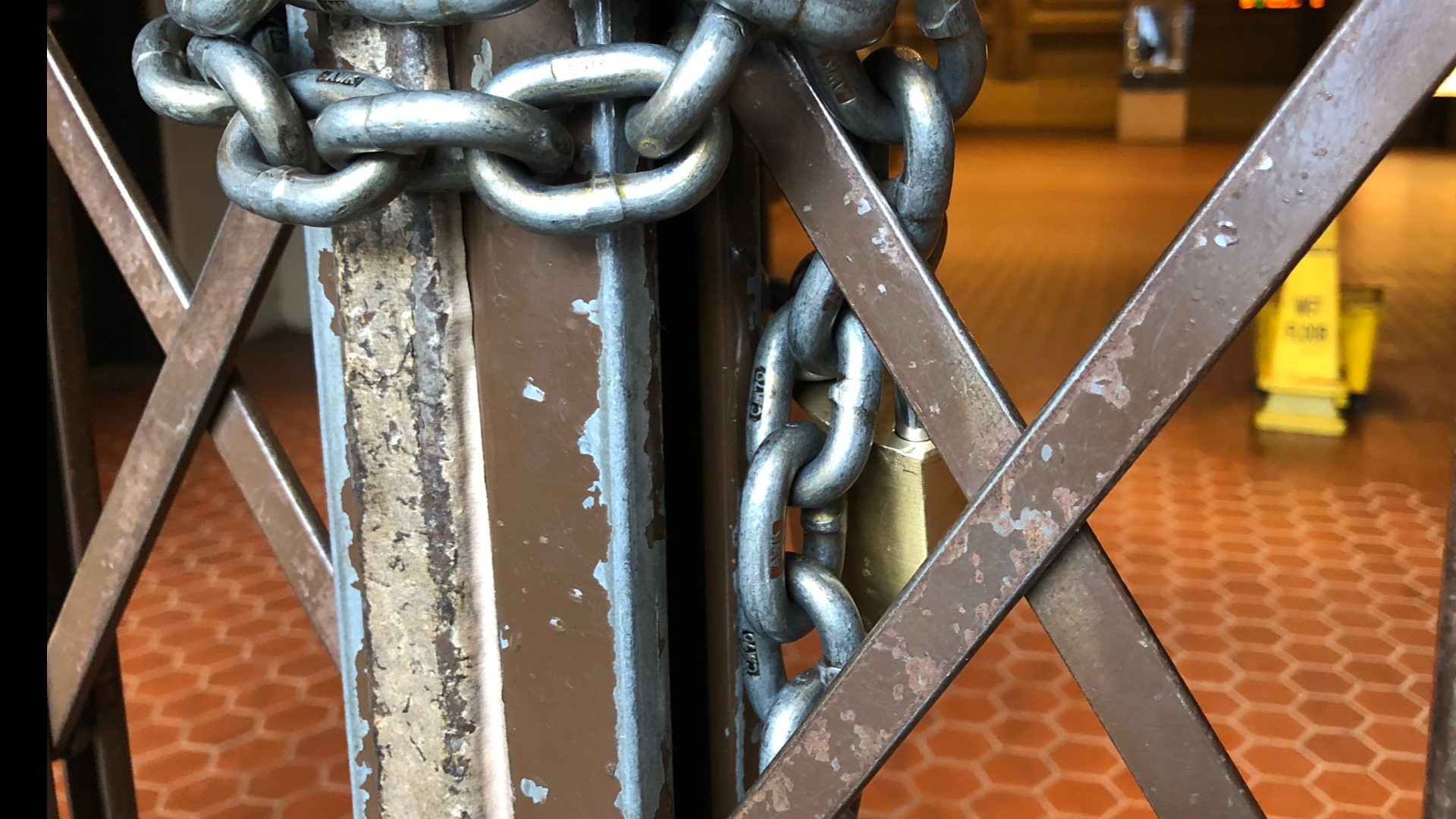WASHINGTON — Facing the constantly changing impact of the coronavirus crisis on our region, Metro has reduced service to “the 20 highest-ridership corridors in the region" this weekend, canceling supplemental bus routes. There will be 30-minute gaps between Metrorail trains, the transit agency announced Friday.
During normal or extended route trips, Metrobus has a fleet of more than 1,500 buses operating on 325 routes.
The transit agency says riders should make essential trips only as the public health emergency continues to evolve. Two stations, Smithsonian and Arlington Cemetery, closed Thursday evening until further notice to thwart tourists bound for the cherry blossoms at Tidal Basin.
In a video call with WUSA9, Metro spokesman Dan Stessel said officials enacted a host of austerity measures to protect Metro’s 12,000 employees while continuing to provide critical service to the Pentagon, Centers for Disease Control and the National Institutes of Health.
Routes Operating Every 30 minutes:
54 14th Street
S4 - 16th Street
70 - Georgia Avenue-7th Street
90 - U Street-Garfield
C4 - Greenbelt-Twinbrook
X2 - Benning Road-H Street
16C - Columbia Pike
28A - Leesburg Pike
29K, 29N - Alexandria-Fairfax
30N, 30S - Friendship Heights - Southeast
83 - College Park
A6, A8 - Anacostia-Congress Heights
B2 - Bladensburg Road-Anacostia
D12 - Oxon Hill-Suitland
F4 - New Carrollton-Silver Spring
H4 - DC Crosstown
J2 - Bethesda-Silver Spring
K6 - New Hampshire Avenue-Maryland
P12 - Eastover-Addison Road
REX - Richmond Highway Express
V4 - Capitol Heights
W4 - Alabama Avenue
Y2 - Georgia Avenue-Maryland
Z8 - Fairland
Learn more about Metro's weekend bus route changes here.
“Space on Metro is a resource that needs to be reserved for essential travel, including the first responders, doctors and nurses working to keep us all safe,” said Metro General Manager Paul Wiedefeld in a statement.
Stessel did say that rail service would probably return to 15-minute train schedules on Monday. But he warned that further service slowdowns and station closures are likely.
“Our goal is not to go to zero service,” said Stessel.
Metro ridership has cratered ever since the agency began to scale back service last week. The transit agency said rail ridership has dropped to less than 100,000 daily trips across the entire system, roughly 85 percent of the ridership from the same time last year. This week, Metro said it will lose $50 million each month the public health crisis lasts, and it requested emergency federal funding from Congress.

